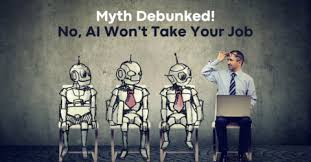
Yale Study Debunks AI Job Loss Myths
The fear that artificial intelligence (AI) is stealing jobs, particularly in the tech sector, has been a hot topic for over two years. Many leaders in the industry express concerns about how AI could transform the job landscape. However, a new study from Yale University has examined this issue and suggests that the panic surrounding job losses due to AI may be more myth than reality.
The Yale report indicates that the anxiety surrounding AI's impact on employment is largely speculative. Researchers analyzed US job data from the 33 months following the release of ChatGPT in 2022, looking at the employment status of college graduates and the exposure of different job levels to AI. They found that changes in workforce composition were minimal, even among those exposed to AI technologies.
In their analysis, researchers categorized workers into three groups based on their exposure to AI: high, medium, and low. Surprisingly, the percentage of workforce representation remained stable across these groups. This indicates that AI is not significantly influencing job losses as many fear. The study also compared the current labor market with the periods when computers became popular in 1984 and when internet entrepreneurship surged in 1996. The findings revealed that the pace of change in the AI era mirrors past technological advancements, suggesting that AI is not more disruptive than its predecessors.
Furthermore, the study examined the job distribution among recent college graduates aged 20 to 24 and older adults aged 25 to 34. The occupational mix and career paths of both age groups were found to be similar, indicating that AI has not significantly impacted entry-level jobs. Instead, the disruptions in the job market for entry-level positions are attributed to a cooling market rather than AI.
The report emphasizes that the overall picture of AI's impact on employment reflects stability rather than major disruptions. It points to various factors influencing the workforce, including the US Federal Reserve's decision to halt the zero-interest rate policy in 2022, coinciding with ChatGPT's launch. Additionally, the increasing number of college graduates with advanced degrees compared to available entry-level jobs is a long-standing issue, predating the AI boom.
In conclusion, while generative AI is poised to be a transformative technology, it's too early to determine its overall impact on jobs. The Yale study provides valuable insights that challenge the prevalent notion of AI-induced job losses, suggesting a more nuanced view of the labor market.











